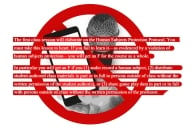You have /5 articles left.
Sign up for a free account or log in.
SAN FRANCISCO -- Why do some students in a course perform better than others of roughly equal ability?
The answers, of course, are as varied as are students. Some spend more time studying, or study more efficiently; some have other priorities; some don't connect with the instructor. Some of these factors relate to metacognition, defined variously as knowing about knowing or being able to understand why we learn the way we do. A student with metacognition may realize after a disappointing test that she didn't study hard enough, and needs to devote more time to academics. The student operating without metacognition may respond to the same setback by trashing his instructor on RateMyProfessors.com.
While some colleges have long taught study skills, some institutions are experimenting with efforts to teach much more than how to study: they are looking for ways to grow their students' metacognition. Many of these projects are still small and don't have years of data to report, but on Friday, several of those involved in the efforts shared their enthusiasm for the approach in a session at the annual meeting of the Association of American Colleges and Universities. The projects discussed here were from members of the Associated Colleges of the Midwest, which received support from the Teagle Foundation to coordinate the efforts.
So how does this work?
Kristin E. Bonnie, an assistant professor of psychology at Beloit College, said that on her tests, she has always let students pick a few questions on the multiple-choice portion (say 3 of 25) that won't be graded. It's a way to show students that she understands they may not grasp everything right away.
In the past, she just let students cross out the questions they didn't want to answer. Now, she makes them answer all the questions -- and to exempt a question from grading, students must pick from a list she provides of the reasons they are selecting that question. Students choose from options such as "I don't remember the material" or "I was able to narrow it down to two possibilities, but not one" or "I didn't study" or "I'm not confident of my answer," among others.
The idea is to make students think for just a minute about why they don't know an answer (or don't know it with confidence).
In another metacognition strategy, students are asked, after they take exams and then when they receive their grades, to take a few moments for reflection and to answer such questions as how much they studied, how they studied, and so forth. Those reflections can be anonymous -- understandable, Bonnie said, when she reads a reflection that states simply "there wasn't a whole lot of studying going on" (although she quipped that she had a good idea who wrote that response).
By forcing students to stop for a few minutes and associate their study habits with their exam performance, and to think about why they don't know an answer, the academics hope to change students' habits -- to encourage them to figure out what they don't know and to study in more effective ways (and more). "We want those who are not doing well to think about it," Bonnie said.
In an era of national mega-projects designed to measure and improve student learning, the session on metacognition was a bit old school -- just faculty members talking about how they were trying new strategies in their courses, and were thinking about the results. No national samples of hundreds of thousands of students. And while Teagle and the Associated Colleges of the Midwest encouraged (and Teagle provided seed money for) the focus on metacognition, the projects were faculty-designed, based on the hunches and experience of individual professors in their own classes. And yet the room was packed, with deans and provosts forced to sit on the floor or listen outside the doors when capacity was reached.
Karl Wirth, professor of geology at Macalester College, said that metacognition requires students both to understand how they are learning and to develop the ability to make plans, to monitor progress and to make adjustments.
So one technique used is to distribute "knowledge surveys" to classes, in which students are asked whether they know the answers to questions (with the ability to say that they know half answers in some cases). He demonstrated by giving the audience a survey on metacognition with various prompts such as "What is metacognition?" and "Describe several metacognitive activities that can be used to improve student learning."
Wirth said that by using these surveys (in which students estimate their knowledge, separately from taking the actual test), students learn to accurately predict how much knowledge they have for an upcoming test or requirement. Over time, students become accurate with their predictions, and those who are predicting low performance are thus challenged to tackle whatever learning or studying issues are holding them back.
David R. Thompson, associate professor of Spanish at Luther College, said he started using surveys of student attitudes and study habits along with regular testing of his language students. When he found that the surveys alone didn't lead to significant changes, he followed up with discussions about study habits, behaviors changed.
"Simply being explicit in class makes a difference," he said
Holly Swyers, assistant professor of anthropology and sociology at Lake Forest College, described an experiment at her institution that involved creating a "pod" in which three courses were coordinated to use metacognition through special programs that also involved student affairs, residence life, athletics and other departments.
First-year students in the various courses went through exercises such as writing themselves a letter at the beginning of the semester about how they thought they would be doing six weeks in -- the period at which "warning grades" are given. Students gathered at that time to read the letters, and to talk about how stunned many were that they were not doing as well as they thought they would. "This is a lot harder than I thought," was a common theme in students discussion of their letters.
Then the students heard presentations from people who had been in their situation the year before but had "recovered" from warning grades.
John Ottenhoff, vice president of the Associated Colleges of the Midwest, said it was too early to use the results to suggest any broad plan for reform of teaching. But he said that the program in just two years has generated "lots of practical ideas and some signs of improvement" in student learning.
Further, he noted that many professors worry that any emphasis on study skills will come at the expense of content, which many faculty members feel they lack enough time for as it is.
Many of these exercises amount to very short periods of time at various times in the semester, not so much time as to "sacrifice" any content, "and not burdening a professor."








